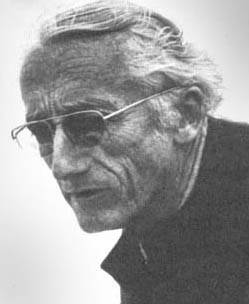
FAQ About Jacques Cousteau

Who was Jacques Cousteau?
Jacques Cousteau was a French marine biologist, naval officer, and filmmaker renowned for his extensive underwater explorations. He is best known for co-developing the Aqua-Lung, a device that made scuba diving more accessible, and for producing numerous documentaries that brought the underwater world to the public eye.

What is the Aqua-Lung, and how did Jacques Cousteau contribute to its development?
The Aqua-Lung is an open-circuit, self-contained underwater breathing apparatus, commonly known as a scuba system. Jacques Cousteau, in collaboration with engineer Émile Gagnan, developed the Aqua-Lung in 1943, allowing divers to breathe underwater for extended periods and revolutionizing underwater exploration.

What are some of Jacques Cousteau's most famous documentaries?
Jacques Cousteau is well-known for several influential documentaries, including "The Silent World," which won a Palme d'Or at the Cannes Film Festival in 1956, and "World Without Sun," which won an Academy Award for Best Documentary Feature in 1964. These works helped spark public interest in marine life and conservation.

How did Jacques Cousteau contribute to marine conservation?
Jacques Cousteau played a pivotal role in raising awareness about the importance of marine conservation. Through his films and writings, he highlighted the beauty and fragility of ocean ecosystems, advocated for the protection of marine environments, and co-founded The Cousteau Society in 1973, dedicated to the protection and improvement of the quality of life for present and future generations.

What innovations in underwater exploration did Jacques Cousteau introduce?
In addition to the Aqua-Lung, Jacques Cousteau introduced several innovations in underwater exploration, including underwater cameras and submarines that allowed filming at great depths. His research vessel, the Calypso, became iconic in the field of marine study and exploration.

What is the Cousteau Society?
The Cousteau Society is an organization founded by Jacques Cousteau in 1973, aimed at promoting marine conservation and education. The society works globally to protect the environment, increase awareness about ocean issues, and inspire others to explore and preserve the natural world.

When and where was Jacques Cousteau born?
Jacques-Yves Cousteau was born on June 11, 1910, in Saint-André-de-Cubzac, a small town in southwestern France.

What role did Jacques Cousteau play during World War II?
During World War II, Jacques Cousteau served as a naval officer in the French Navy. He conducted experiments in underwater photography and exploration during this time, which paved the way for his post-war innovations in diving technology and marine exploration.

How did Jacques Cousteau's work impact public interest in marine life?
Jacques Cousteau's engaging documentaries and television series, such as "The Undersea World of Jacques Cousteau," captured the imagination of audiences worldwide. His storytelling and visual documentation of marine life brought the underwater world into homes, significantly boosting public interest and awareness in oceanic matters.

What awards and honors did Jacques Cousteau receive?
Jacques Cousteau received numerous awards throughout his lifetime, including the National Geographic Society's Gold Medal in 1961, multiple Academy Awards for his documentaries, and the Presidential Medal of Freedom in 1985. These accolades reflect his profound impact on marine exploration and environmental advocacy.

What influence did Jacques Cousteau have on future generations of marine biologists?
Jacques Cousteau inspired several generations of marine biologists, filmmakers, and environmentalists by demonstrating the importance and beauty of the ocean. His work fostered a global consciousness about marine conservation and motivated many to pursue careers in marine science, documentary filmmaking, and activism.

What books did Jacques Cousteau write?
Jacques Cousteau authored numerous books, including "The Silent World," "The Living Sea," and "Dolphins," which detail his explorations and share insights into marine biology and conservation. These works continue to educate and inspire readers about the underwater world.

How did Jacques Cousteau's early life influence his career path?
Cousteau grew up with a passion for travel and adventure, which was nurtured by his family’s encouragement. As a young man, he developed an interest in film and the sea, which guided him towards a career in naval service and eventually in pioneering underwater exploration and filmmaking.

What was Jacques Cousteau's philosophy on environmental protection?
Jacques Cousteau advocated for the sustainable use of natural resources and believed in the interconnectedness of all life. He often emphasized that the health of the oceans is critical to the well-being of the planet and its inhabitants, promoting a message of thoughtful stewardship of the environment.

What challenges did Jacques Cousteau face in his career?
Jacques Cousteau faced numerous challenges, including technological limitations of early underwater exploration, funding for his projects, and skepticism from peers. Despite these obstacles, his determination and innovation led to successful expeditions and significant advancements in marine exploration.

How did Jacques Cousteau's work influence ocean policy?
Through his advocacy and influential documentaries, Jacques Cousteau played an essential role in shaping global awareness of marine conservation issues, which influenced policy discussions. He was a vocal advocate for the Antarctic Treaty System and supported measures to protect endangered marine environments.

Are there any places or features named after Jacques Cousteau?
Yes, several locations and features have been named in honor of Jacques Cousteau, including marine research centers, such as the Cousteau National Estuarine Research Reserve in New Jersey, and marine sanctuaries. These names recognize his contributions to ocean exploration and conservation.

What personal values did Jacques Cousteau promote through his work?
Jacques Cousteau promoted values such as curiosity, exploration, and responsibility towards nature. He believed in the power of education and communication to foster greater understanding and protection of the natural world, encouraging people to appreciate and preserve the marine environment.

Did Jacques Cousteau receive any criticism for his work?
While Jacques Cousteau was widely celebrated, he did face criticism from some quarters concerning the environmental impact of his explorations and alleged commercialization. Despite this, his overall contribution to marine science and public awareness is widely recognized as deeply positive.

What is the legacy of Jacques Cousteau today?
The legacy of Jacques Cousteau endures in the fields of marine biology, environmentalism, and documentary filmmaking. His pioneering work in underwater exploration has inspired countless researchers and conservationists, and his films and writings continue to educate new generations about the importance of protecting our oceans.
